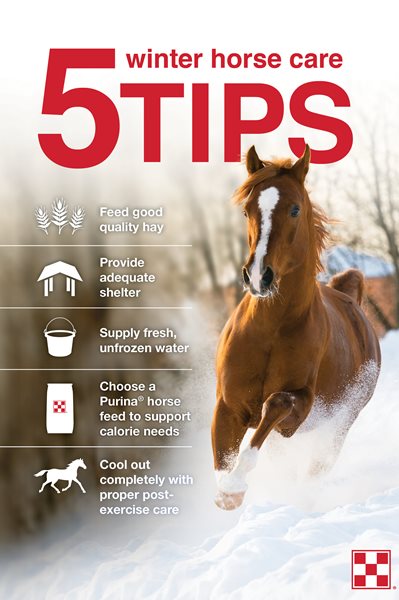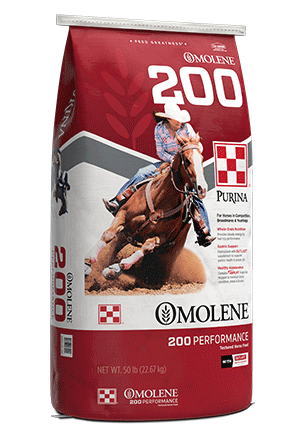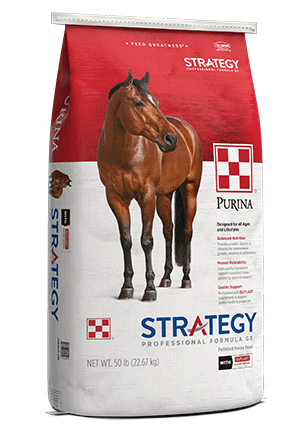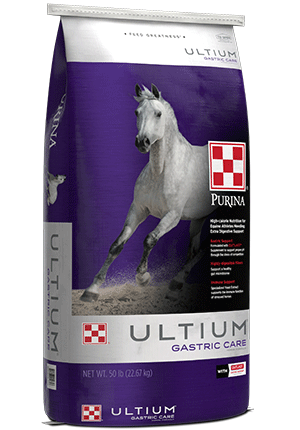
How to Care for Horses in Winter
Care : Seasonality
If you’re wondering, “Do horses get cold in the winter?” the answer is yes. However, even horses in cold climates can fare quite well during the winter months. With proper diets, exercise and access to appropriate water and shelter, they will make it through comfortably and be ready to get back to work when the weather allows.
As cold weather approaches and temperatures drop, horse owners need to consider how to care for horses in the winter. During the cold season, make sure your horses receive proper feed, water and shelter to stay healthy and comfortable. A healthy layer of fat under the skin provides insulation against the cold. The horse’s body condition score should be between 5 and 6, or moderate to moderately fleshy. Horses in this range require less dietary energy for maintenance in cold weather than thin horses. Cold temperatures generally increase the number of calories horses need to maintain body weight and function.
A healthy layer of fat under the skin provides insulation against the cold. The horse’s body condition score should be between 5 and 6, or moderate to moderately fleshy. Horses in this range require less dietary energy for maintenance in cold weather than thin horses. Cold temperatures generally increase the number of calories horses need to maintain body weight and function.
It’s a common misconception that horse diets should include more corn to stay warm. Corn and cereal grains do not cause the horse to become warmer. Instead, provide high-quality hay as fermentation of fiber releases more heat than starch from grain for horses to maintain body heat. A horse needs at least 1% of their body weight per day in roughage to maintain a healthy digestive system. However, 2% or more may be appropriate during cold weather, especially if your horses live outdoors.
Horses can also be less feed-efficient when temperatures drop below their comfort zone. In general, feeding an additional one-quarter pound of grain per 100 pounds of body weight daily to non-working horses can provide adequate calories during cold, windy and wet weather. Working horses may require up to an additional one-half pound per 100 pounds of body weight per day, depending on workload, to maintain weight during cold weather.
Feeds such as Purina® Ultium®, Purina® Strategy®, or Purina® Omolene® 200 can be especially helpful in these situations since the added fat provides more calories per pound of feed. Senior horses may have additional challenges in the winter due to decreased ability to chew or digest hay. Purina® Equine Senior® horse feed can help with digestion, absorption of nutrients and meet elevated fiber and calorie requirements without depending on forage.
If the water is too cold, the horse may drink less, which can decrease feed intake. Without enough water intake, there is also an increased risk of impaction colic because their gut is not adequately lubricated.
Horses living outside should have access to adequate shelter from weather. Trees and three-sided sheds or stables are great options. With no wind or moisture, horses tolerate temperatures near zero degrees Fahrenheit, and even colder if a good shelter is available. They may group to share body heat and sometimes take a brisk run before coming back together to share the warmth.
Provide adequate winter blankets if horses primarily live indoors or are clipped. Maintain good air quality and ventilate the barn to help prevent respiratory stress. Closed and heated barns are often poorly ventilated, and respiratory illnesses are common with horses kept indoors during winter.
To prevent a slump, here are some suggestions:
Looking for the right feed to keep your horse in shape through winter? Sign up for the Feed Greatness® Challenge to try a Purina® horse feed.*
*The Feed Greatness® Challenge is a 30-day feeding trial where you will feed Purina® feed, monitor your horse's performance and health, take pictures and receive emails with helpful information.
As cold weather approaches and temperatures drop, horse owners need to consider how to care for horses in the winter. During the cold season, make sure your horses receive proper feed, water and shelter to stay healthy and comfortable.
What to feed horses in winter
 A healthy layer of fat under the skin provides insulation against the cold. The horse’s body condition score should be between 5 and 6, or moderate to moderately fleshy. Horses in this range require less dietary energy for maintenance in cold weather than thin horses. Cold temperatures generally increase the number of calories horses need to maintain body weight and function.
A healthy layer of fat under the skin provides insulation against the cold. The horse’s body condition score should be between 5 and 6, or moderate to moderately fleshy. Horses in this range require less dietary energy for maintenance in cold weather than thin horses. Cold temperatures generally increase the number of calories horses need to maintain body weight and function.It’s a common misconception that horse diets should include more corn to stay warm. Corn and cereal grains do not cause the horse to become warmer. Instead, provide high-quality hay as fermentation of fiber releases more heat than starch from grain for horses to maintain body heat. A horse needs at least 1% of their body weight per day in roughage to maintain a healthy digestive system. However, 2% or more may be appropriate during cold weather, especially if your horses live outdoors.
Horses can also be less feed-efficient when temperatures drop below their comfort zone. In general, feeding an additional one-quarter pound of grain per 100 pounds of body weight daily to non-working horses can provide adequate calories during cold, windy and wet weather. Working horses may require up to an additional one-half pound per 100 pounds of body weight per day, depending on workload, to maintain weight during cold weather.
Feeds such as Purina® Ultium®, Purina® Strategy®, or Purina® Omolene® 200 can be especially helpful in these situations since the added fat provides more calories per pound of feed. Senior horses may have additional challenges in the winter due to decreased ability to chew or digest hay. Purina® Equine Senior® horse feed can help with digestion, absorption of nutrients and meet elevated fiber and calorie requirements without depending on forage.
Watering horses in winter
Fresh, clean and unfrozen water should always be available to your horse. Snow is not a sufficient substitute for water, as the horse cannot physically eat enough snow to meet its water requirement. Ideally, the water temperature should be between 45- and 65-degrees Fahrenheit. Drinking colder water will increase energy requirements because more calories are required to warm the water to body temperature inside the digestive tract.If the water is too cold, the horse may drink less, which can decrease feed intake. Without enough water intake, there is also an increased risk of impaction colic because their gut is not adequately lubricated.
Shelter for horses in winter
How do horses stay warm in cold weather? Even in cold climates, horses can be happy and healthy outdoors. Horses kept outdoors during the winter should be allowed to grow a natural and full winter coat. A thick, dry coat of hair is an excellent insulator and their first line of defense against cold temperatures.Horses living outside should have access to adequate shelter from weather. Trees and three-sided sheds or stables are great options. With no wind or moisture, horses tolerate temperatures near zero degrees Fahrenheit, and even colder if a good shelter is available. They may group to share body heat and sometimes take a brisk run before coming back together to share the warmth.
Provide adequate winter blankets if horses primarily live indoors or are clipped. Maintain good air quality and ventilate the barn to help prevent respiratory stress. Closed and heated barns are often poorly ventilated, and respiratory illnesses are common with horses kept indoors during winter.
Exercising horses in winter
Many horses are given the winter off due to cold weather or to provide a period of rest after a heavy show season. However, if horses take a vacation for too long, they may forget some of what they have learned and lose the fitness level gained while working.To prevent a slump, here are some suggestions:
- Longe your horse once or twice a week. It also allows you to groom, pick feet, check for injury, and evaluate their body condition.
- Ride your horses whenever possible, weather permitting. If you have multiple horses, you can ride one and pony another. Doing this can save time and gets two horses working.
- Remember your horse may have less stamina in winter than warmer seasons when you were riding more, so keep the work light.
- Cool your horse down thoroughly after work and do not blanket or turn out until they are completely dry to reduce the risk of pneumonia, cold or colic.
- Check with local stables to see if their facilities are available to non-boarders. Stables often allow outside horses and riders to use indoor or outdoor arenas for a fee.
Looking for the right feed to keep your horse in shape through winter? Sign up for the Feed Greatness® Challenge to try a Purina® horse feed.*
*The Feed Greatness® Challenge is a 30-day feeding trial where you will feed Purina® feed, monitor your horse's performance and health, take pictures and receive emails with helpful information.




